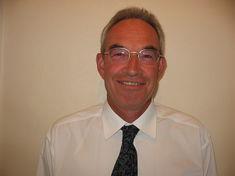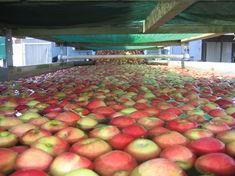

New Zealand’s apple growers hope to be in the second wave of an initiative from their national government to have their products’ carbon footprint measured.
Peter Beaven, chief executive of industry body Pipfruit New Zealand, said: “The ministry of agriculture and forestry (MAF) is carbon footprinting several products, and we have applied to be in the next batch after dairy, lamb, kiwifruit and wine.
“It is not just about measurement, but will involve workshops so the different sectors can learn from each other and also, importantly, will feature recommendations on how we can improve.”
Beaven said that, following on from the industry’s residue reduction project, Apple Futures, launched last year, the carbon-footprinting initiative is the “next major thing”.
Results from the first year of operation of Apple Futures were released earlier this month at Pipfruit NZ’s agm and conference, and are extremely encouraging for the industry.
“We tracked product from 120 different orchards, testing for 275 different chemicals with 300 residue sampling and almost across the board, results came in under 10 per cent of maximum residue levels (MRLs) and more than 20 per cent of the tests showed zero detectable residues,” said Beaven.
But one of the most interesting aspects of the Apple Futures project so far is that testing is done at each stage of the post-harvest process: the water-dump, apple-washer and rollers at the packhouse. “What we have found,” said Beaven, “is the residues all pretty much end up at the limits of detection by the time the fruit goes into a box, making very safe fruit for consumers to enjoy.”
Beaven admitted that the results were what Pipfruit NZ was expecting, but added that they had exceeded the expectations of the grower base represented at the conference and agm.
The two-day event was attended by more than 200 delegates and had a very strong grower attendance rate. Sustainability was the theme of all the presentations, including that given by Marks & Spencer top-fruit technologist Andrew Mellonie, which had been pre-recorded on DVD in the UK.
Des O’Rourke of publisher Belrose Inc spoke on mega-trends in the world apple industry, as well as the status of the sustainability issue in the US marketplace. He urged the NZ industry to work on a sustainability programme itself rather than risk others imposing their own on growers and exporters in the future.
This was backed up by MAF policy analyst Alison Watson, who told growers on how the food miles issue that reared its head two years ago as a worrying trend for NZ growers, has evolved into a wider and deeper concern for the carbon footprint of production. It will not disappear, she emphasised.
The second day of the conference featured exporter meetings, and growers’ technical meetings as well as an update on research and development in the top-fruit sector from HortResearch.



